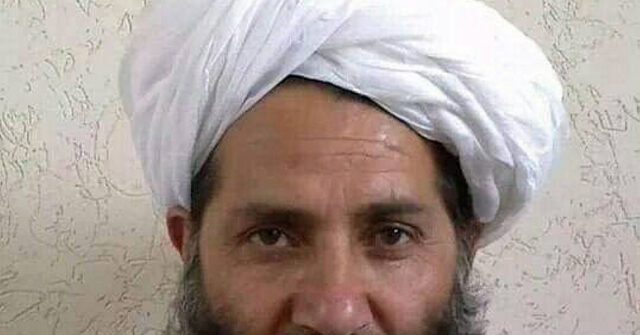Taliban Supreme Leader Hibatullah Akhundzada issued a statement on Friday to commemorate four years since his band of Islamist extremists recaptured Afghanistan.
In his statement, Akhundzada warned that Afghans who resisted the religious authority of his regime would be “subjected to the severe punishment of Allah Almighty.”
“These are great divine blessings that our people should not forget and, during the commemoration of Victory Day, express great gratitude to Allah Almighty so that the blessings will increase,” said the reclusive spiritual and political leader of the Taliban regime.
“Victory Day” is the junta’s name for the August 15, 2021, the day it seized power after President Joe Biden’s disastrous withdrawal of American forces from Afghanistan.
“If, against Allah’s will, we fail to express gratitude for blessings and are ungrateful for them, we will be subjected to the severe punishment of Allah Almighty,” Akhundzada continued.
The supreme leader told a Cabinet meeting on Wednesday that “religious knowledge” was the key to ensuring the stability of Taliban rule. He encouraged “the promotion of religious awareness, the discouragement of immoral conduct, the protection of citizens from harmful ideologies, and the instruction of Afghans in matters of faith and creed.”
The Taliban junta has been unconvincingly pretending it was merely a “temporary” or “transitional” government, holding Kabul together until some sort of general and inclusive election might be held.
Akhundzada ordered his henchmen to drop that pretense on Friday by removing “acting” from their titles. He urged them to “serve the Sharia system and Muslims” by retaining power on a permanent basis. “Sharia” means Islamic law.
According to Akhundzada, the “sacred Sharia system” has freed Afghanistan from “corruption, oppression, land usurpations, narcotics, theft, looting, and plunder.”
Opium production has greatly declined since the Taliban ostentatiously banned poppy cultivation in April 2022, but it has not ceased altogether. In fact, the United Nations reported a 19-percent spike in Afghanistan’s opium output last year, driven largely by desperation and poverty under Taliban rule. The U.N. hoped it might teach farmers in northeastern Afghanistan to grow crops other than opium poppies as a means of feeding their families.
Organized crime experts say much of the reduction in opium production under the Taliban regime has been illusory, because huge stockpiles of opium are still being sold on the world market, and many of the poppy farmers simply moved a short distance across the border into Pakistan. Meanwhile, Afghanistan drug traffickers have dramatically increased their production of methamphetamines, shifting to different products instead of abandoning the drug trade altogether.
Outside observers noted that Afghanistan’s “Victory Day” celebrations were considerably more restrained than the exuberant military parades of the past few years, which prominently featured captured American military hardware abandoned by Joe Biden, and triumphant marches through abandoned U.S. bases. This year, the Taliban is making do with an aerial flower drop and some sporting events in Kabul.
Read the full article here


